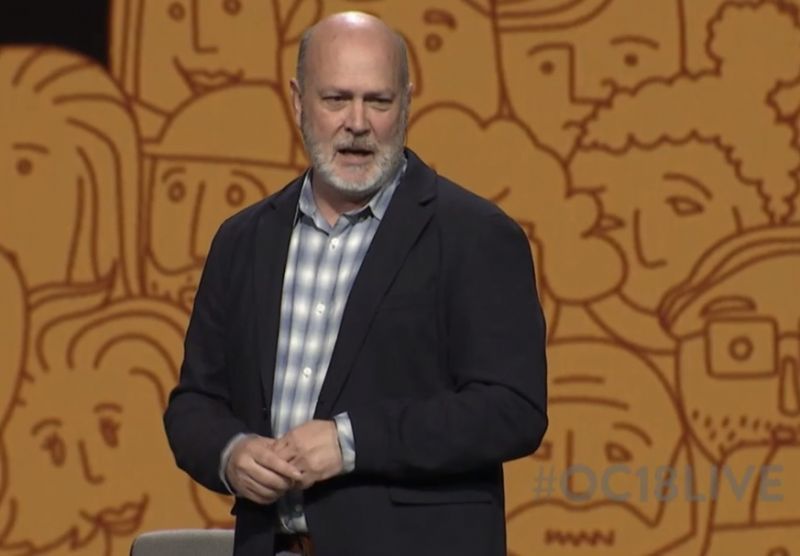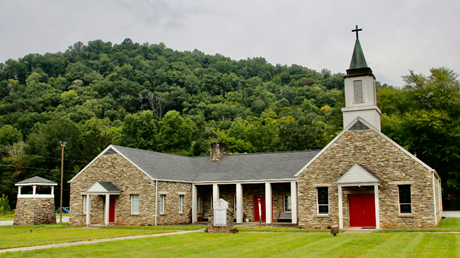Search Results for Positions
Articles
An Historic Look at Protestant Eschatological Thought on the Rise and Fall of Islam
|
Chapters 10 and 11 – 30 Minutes
|
Chapter 1 – 30 Minutes
|
News
A veteran missiologist shares a lifetime of lessons on bringing the gospel into unfamiliar settings.
 In an important new book, missiologist Darrell Whiteman tells a revealing story about a missionary who had been preaching in a particular community. Without realizing it, the missionary gave offense by wearing expensive shoes in a place where people couldn’t afford shoes of any type. For Whiteman, this anecdote illustrates how much missionaries need to learn—and how many presumptions they might need to abandon—in order to bring the gospel to people in other cultures.Whiteman’s book Crossing Cultures with the Gospel: Anthropological Wisdom for Effective Christian Witness, challenges his readers—and missionaries in particular—to recognize the possible ethnocentrism in their perspective, which can distort and impede their ability to communicate well across cultural boundaries. As he explains, each culture has its own ways of understanding and coping with the problems of life. All of us understand biblical truths in ways that seem natural to us in our own cultures but not to people who have grown up in other cultures.In each community, traditions of communication and interaction develop over time, resulting in distinct customs. Every community has its own sense of the past, its own traditions of loyalty and obligation, its own rules of courtesy, and its own conceptions of virtue and honor. If missionaries are to communicate with people who have grown up in other cultures, argues Whiteman, they must lay aside their own presuppositions and cultural conventions and commit to acquiring knowledge of unfamiliar customs and ways of thought.Watching, listening, and asking questionsThe missionary project, as Whiteman reminds us, is to insert the universal message of the gospel “within the very ...Continue reading... In an important new book, missiologist Darrell Whiteman tells a revealing story about a missionary who had been preaching in a particular community. Without realizing it, the missionary gave offense by wearing expensive shoes in a place where people couldn’t afford shoes of any type. For Whiteman, this anecdote illustrates how much missionaries need to learn—and how many presumptions they might need to abandon—in order to bring the gospel to people in other cultures.Whiteman’s book Crossing Cultures with the Gospel: Anthropological Wisdom for Effective Christian Witness, challenges his readers—and missionaries in particular—to recognize the possible ethnocentrism in their perspective, which can distort and impede their ability to communicate well across cultural boundaries. As he explains, each culture has its own ways of understanding and coping with the problems of life. All of us understand biblical truths in ways that seem natural to us in our own cultures but not to people who have grown up in other cultures.In each community, traditions of communication and interaction develop over time, resulting in distinct customs. Every community has its own sense of the past, its own traditions of loyalty and obligation, its own rules of courtesy, and its own conceptions of virtue and honor. If missionaries are to communicate with people who have grown up in other cultures, argues Whiteman, they must lay aside their own presuppositions and cultural conventions and commit to acquiring knowledge of unfamiliar customs and ways of thought.Watching, listening, and asking questionsThe missionary project, as Whiteman reminds us, is to insert the universal message of the gospel “within the very ...Continue reading... |
 The founder and CEO of a noted Christian ministry have resigned after admitting to an inappropriate relationship, prompting the organization's Board of Directors to appoint an interim replacement while they search for people to fill the positions permanently. The founder and CEO of a noted Christian ministry have resigned after admitting to an inappropriate relationship, prompting the organization's Board of Directors to appoint an interim replacement while they search for people to fill the positions permanently. |
Study: 24 percent of clergy in North Carolina are still opposed to same-sex marriage.
 After the departure of thousands of traditionalist United Methodist churches from the denomination over the past five years, it might stand to reason that those congregations remaining in the fold are more progressive and open to ordination and marriage of people in same-sex relationships.But the picture is far more mixed.A new report from the Religion and Social Change Lab at Duke University that looked at disaffiliating clergy from North Carolina’s two United Methodist conferences or regions found that even after the departures, 24 percent of North Carolina clergy remaining in the denomination disagree with allowing LGBTQ people to get married or ordained within the denomination.“At least some amount of ambivalence over LGBTQ+ issues among UMC clergy is likely to persist for years to come,” the report concluded.After a four-year COVID-19 delay and the departure of about 7,600 churches—a loss of 25 percent of all its US congregations—the denomination is likely to reconsider the issue of human sexuality when it convenes its top legislative body April 23–May 3 in Charlotte, North Carolina.Given that the denomination is a worldwide body, with hundreds of delegates from Africa and the Philippines, areas far more conservative in their views of human sexuality, it’s unclear whether the measures stand a chance of passing, even as the US delegation is far more open to such changes.Overall, the Duke report finds that disaffiliating North Carolina clergy were much more politically and theologically conservative than those who chose to remain. Some 85 percent of clergy who left the denomination disagreed with the notion that “all religious leadership positions should be open to people ...Continue reading... After the departure of thousands of traditionalist United Methodist churches from the denomination over the past five years, it might stand to reason that those congregations remaining in the fold are more progressive and open to ordination and marriage of people in same-sex relationships.But the picture is far more mixed.A new report from the Religion and Social Change Lab at Duke University that looked at disaffiliating clergy from North Carolina’s two United Methodist conferences or regions found that even after the departures, 24 percent of North Carolina clergy remaining in the denomination disagree with allowing LGBTQ people to get married or ordained within the denomination.“At least some amount of ambivalence over LGBTQ+ issues among UMC clergy is likely to persist for years to come,” the report concluded.After a four-year COVID-19 delay and the departure of about 7,600 churches—a loss of 25 percent of all its US congregations—the denomination is likely to reconsider the issue of human sexuality when it convenes its top legislative body April 23–May 3 in Charlotte, North Carolina.Given that the denomination is a worldwide body, with hundreds of delegates from Africa and the Philippines, areas far more conservative in their views of human sexuality, it’s unclear whether the measures stand a chance of passing, even as the US delegation is far more open to such changes.Overall, the Duke report finds that disaffiliating North Carolina clergy were much more politically and theologically conservative than those who chose to remain. Some 85 percent of clergy who left the denomination disagreed with the notion that “all religious leadership positions should be open to people ...Continue reading... |
Study: 24 percent of clergy in North Carolina are still opposed to same-sex marriage.
 After the departure of thousands of traditionalist United Methodist churches from the denomination over the past five years, it might stand to reason that those congregations remaining in the fold are more progressive and open to ordination and marriage of people in same-sex relationships.But the picture is far more mixed.A new report from the Religion and Social Change Lab at Duke University that looked at disaffiliating clergy from North Carolina’s two United Methodist conferences or regions found that even after the departures, 24 percent of North Carolina clergy remaining in the denomination disagree with allowing LGBTQ people to get married or ordained within the denomination.“At least some amount of ambivalence over LGBTQ+ issues among UMC clergy is likely to persist for years to come,” the report concluded.After a four-year COVID-19 delay and the departure of about 7,600 churches—a loss of 25 percent of all its US congregations—the denomination is likely to reconsider the issue of human sexuality when it convenes its top legislative body April 23–May 3 in Charlotte, North Carolina.Given that the denomination is a worldwide body, with hundreds of delegates from Africa and the Philippines, areas far more conservative in their views of human sexuality, it’s unclear whether the measures stand a chance of passing, even as the US delegation is far more open to such changes.Overall, the Duke report finds that disaffiliating North Carolina clergy were much more politically and theologically conservative than those who chose to remain. Some 85 percent of clergy who left the denomination disagreed with the notion that “all religious leadership positions should be open to people ...Continue reading... After the departure of thousands of traditionalist United Methodist churches from the denomination over the past five years, it might stand to reason that those congregations remaining in the fold are more progressive and open to ordination and marriage of people in same-sex relationships.But the picture is far more mixed.A new report from the Religion and Social Change Lab at Duke University that looked at disaffiliating clergy from North Carolina’s two United Methodist conferences or regions found that even after the departures, 24 percent of North Carolina clergy remaining in the denomination disagree with allowing LGBTQ people to get married or ordained within the denomination.“At least some amount of ambivalence over LGBTQ+ issues among UMC clergy is likely to persist for years to come,” the report concluded.After a four-year COVID-19 delay and the departure of about 7,600 churches—a loss of 25 percent of all its US congregations—the denomination is likely to reconsider the issue of human sexuality when it convenes its top legislative body April 23–May 3 in Charlotte, North Carolina.Given that the denomination is a worldwide body, with hundreds of delegates from Africa and the Philippines, areas far more conservative in their views of human sexuality, it’s unclear whether the measures stand a chance of passing, even as the US delegation is far more open to such changes.Overall, the Duke report finds that disaffiliating North Carolina clergy were much more politically and theologically conservative than those who chose to remain. Some 85 percent of clergy who left the denomination disagreed with the notion that “all religious leadership positions should be open to people ...Continue reading... |
Study: 24 percent of clergy in North Carolina are still opposed to same-sex marriage.
 After the departure of thousands of traditionalist United Methodist churches from the denomination over the past five years, it might stand to reason that those congregations remaining in the fold are more progressive and open to ordination and marriage of people in same-sex relationships.But the picture is far more mixed.A new report from the Religion and Social Change Lab at Duke University that looked at disaffiliating clergy from North Carolina’s two United Methodist conferences or regions found that even after the departures, 24 percent of North Carolina clergy remaining in the denomination disagree with allowing LGBTQ people to get married or ordained within the denomination.“At least some amount of ambivalence over LGBTQ+ issues among UMC clergy is likely to persist for years to come,” the report concluded.After a four-year COVID-19 delay and the departure of about 7,600 churches—a loss of 25 percent of all its US congregations—the denomination is likely to reconsider the issue of human sexuality when it convenes its top legislative body April 23–May 3 in Charlotte, North Carolina.Given that the denomination is a worldwide body, with hundreds of delegates from Africa and the Philippines, areas far more conservative in their views of human sexuality, it’s unclear whether the measures stand a chance of passing, even as the US delegation is far more open to such changes.Overall, the Duke report finds that disaffiliating North Carolina clergy were much more politically and theologically conservative than those who chose to remain. Some 85 percent of clergy who left the denomination disagreed with the notion that “all religious leadership positions should be open to people ...Continue reading... After the departure of thousands of traditionalist United Methodist churches from the denomination over the past five years, it might stand to reason that those congregations remaining in the fold are more progressive and open to ordination and marriage of people in same-sex relationships.But the picture is far more mixed.A new report from the Religion and Social Change Lab at Duke University that looked at disaffiliating clergy from North Carolina’s two United Methodist conferences or regions found that even after the departures, 24 percent of North Carolina clergy remaining in the denomination disagree with allowing LGBTQ people to get married or ordained within the denomination.“At least some amount of ambivalence over LGBTQ+ issues among UMC clergy is likely to persist for years to come,” the report concluded.After a four-year COVID-19 delay and the departure of about 7,600 churches—a loss of 25 percent of all its US congregations—the denomination is likely to reconsider the issue of human sexuality when it convenes its top legislative body April 23–May 3 in Charlotte, North Carolina.Given that the denomination is a worldwide body, with hundreds of delegates from Africa and the Philippines, areas far more conservative in their views of human sexuality, it’s unclear whether the measures stand a chance of passing, even as the US delegation is far more open to such changes.Overall, the Duke report finds that disaffiliating North Carolina clergy were much more politically and theologically conservative than those who chose to remain. Some 85 percent of clergy who left the denomination disagreed with the notion that “all religious leadership positions should be open to people ...Continue reading... |



 Links
Links  Articles
Articles  Blogs
Blogs  Videos
Videos  News
News  Colors
Colors 

 New links
New links


